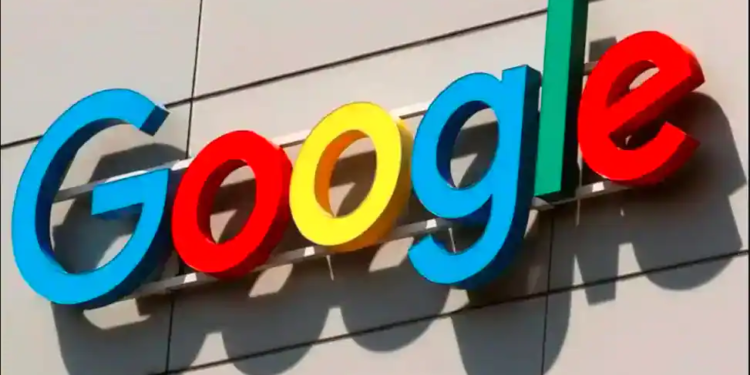New Delhi: An advertisement is part of “free speech” but it cannot be at the cost of the trademark of an owner as it amounts to a misleading ad, the Delhi High Court has said, asking Google to investigate a complaint about diversion of Web traffic to an imposter’s site.
The high court said Google, which earns revenue through ads, is equally liable for the omissions and commissions of an advertiser who, through oblique motives, is cashing upon goodwill of the trademark owner for his own benefit.
The court noted that as per Google’s policy, they investigate use of the trademark as a keyword but that is only confined for the European Union (EU) and not being followed in India and it was in addition to the investigation undertaken for an infringement of trademark in Ad-title and Ad-text.
READ | Google to let you request to remove images from search results
The high court’s order came while directing Google India Ltd and Google LLC to investigate any complaint to be made to them by the plaintiff, Agarwal Packers and Movers Ltd, alleging use of its trademark and variations as keywords resulting in the diversion of traffic from the website of the plaintiff to that of the advertiser. “There cannot be any dispute that the advertisement is part of free speech, but surely that free speech cannot be at the cost of the trademark of an owner which amounts to a misleading advertisement,” Justice V Kameswar Rao said in a 137-page order.
The high court said there is no doubt that the usage of trademark as keyword results in diversion of traffic from the trademark owner’s website to the webpage of the advertiser which causes prejudice to the owner in terms of goodwill and credibility for the services and should be investigated by Google.
The judge said it was only a prima facie conclusion and not a final determination of the suit.
The order came on a plea filed by Agarwal Packers and Movers Ltd (APML) and DRS Logistics Pvt Ltd against Google India Ltd, Google Inc and Just Dial, seeking to prevent infringement and misuse of their trademark ?Agarwal Packers & Movers (APM).
The court directed Google India and Google LLC to also investigate and review the overall effect of an advertisement to ascertain that it is not infringing or passing off the trademark of the plaintiff and if a violation is found, it shall restrain the advertiser from using the same and remove such advertisements.
The plea said the search results showing the imposter’s website at the top in Google search engine were causing confusion and deception with the intention to ride on the goodwill of the original owner of the trademark.
APML, represented through senior advocate Chander M Lall, claimed that Google was diverting the traffic meant for it towards imposter sites just because they were offering a higher bid price to Google for its trademark.
“By this mechanism while APML was being forced to bid/ compete for its own trademarks with imposters, the unsuspecting consumers and public were being misled into handing over its valuable household goods into the hands of these imposters and then losing their life-earned items,” it said.
Google, represented through senior advocate Sandeeep Sethi, contended that it was an intermediary and cannot be held liable for such violations and that the key words are chosen by advertisers and any complaints by APML should be addressed to the advertiser and not Google.
About the different policies followed by the Internet giant on the issue, the high court order said: “It is clear that the fact that Google is investigating an Ad where use of trademark as a keyword is being used, there cannot be any reason why such a procedure is not followed in India. It appears this stipulation has been incorporated in their policy with regard to EU countries for the reason that there might be a chance of deception/ confusion in a given Ad which pops-up on the basis of search query which has also been chosen as a keyword, which may trigger the advertisement consisting of the infringed trademark/ references to it.”
The court said it was unclear that on what basis a distinction has been drawn by Google between certain countries with regard to the trademark policies so formulated and followed.
“Be that as it may, it is clear from Google’s EU and EFTA (European Free Trade Association) policy that Google provides a higher duty of care in a jurisdiction where large portions of the population are internet literate. This aspect further fortifies my finding as to why such a policy should be followed in India,” the judge said.
“Allowing individuals who are not owners of a trademark to choose a keyword which is a trademarked term or use parts of the trademark interspersed with generic words in the Ad-title and / or Ad-text may constitute an infringement of a trademark and / or passing off,” the court said.
The court took into account an affidavit filed by a consumer who had searched for APML but got confused while making the web search and suffered huge damages due to the confusion created by the defendants.
It does prima facie reveal that with usage of trademark of plaintiff as a keyword the traffic from the webpage of the plaintiff is being diverted to the webpage of the competitor/ advertiser which means that a normal consumer who on typing the trademark of plaintiff as a search query was led to a webpage which had caused confusion regarding the origin of the webpage, whether belonging to the plaintiff or not.
“In cases of intellectual property, the courts must also be mindful of the fact that it is ultimately the public at large which gets cheated and feels the brunt of spurious goods and services in the market,” it said.
Live TV










